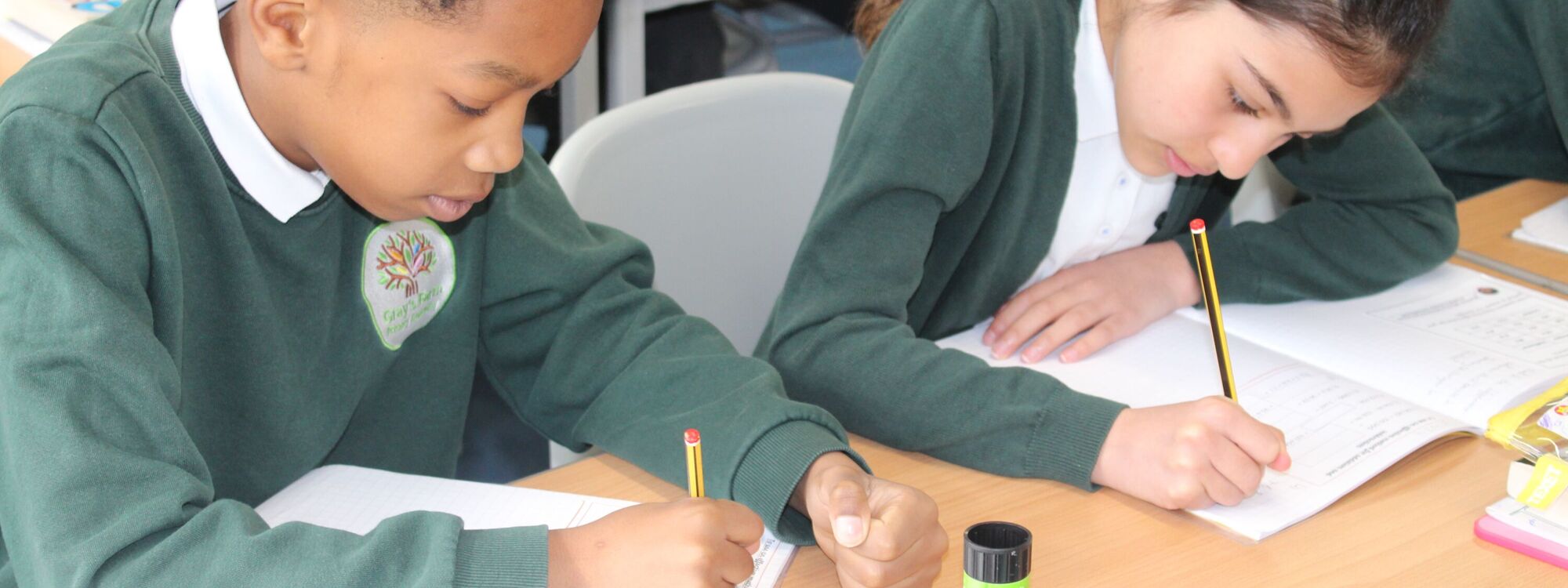English
At Gray’s Farm, we value writing as a key life skill, and are dedicated to enabling our children to become lifelong writers. We believe that writing is a valuable tool for children to express their viewpoint and for ensuring their best possible chance of academic success. We want every child to leave Gray’s Farm with the skills of a confident writer and to value the enjoyment and fulfilment of adding words to paper.
Writing
Our approach to writing is based around teaching key skills and then allowing the children to apply these independently during English and Curriculum lessons. We ensure children are engaged in writing through our use of a wide and varied range of stimulus – pictures, video clips, music, books and role-play. Children are given the opportunity to write both fiction and non-fiction texts. Teachers model the writing and planning process through shared writing sessions, where ideas are collected and developed and talk plays a huge role in writing sessions. An expectation that effective writing will include a variety of sentence structures, building from a simple main clause sentence in KS1 to a range of complex sentence structures (using the full range of grammar and punctuation) by the end of KS2.
Children are encouraged to consider the impact they want their writing to have on the reader and to know how to achieve this. Across the school, we dedicate time at the end of each writing session to allow editing by re-reading and improving writing so it is to the best of a child’s ability before being assessed by the teacher.
Grammar and punctuation are contextually taught within English and then checked through our daily 'Can You Still'. Objectives taught within English are used to develop writing across the curriculum.
Spelling
All of the spellings that the children are taught at Gray’s Farm are taken from the National Curriculum suggested word lists and follow the recommended spelling rules. For example, adding the suffix -ly, turns an adjective (a describing word for a noun) into an adverb (a describing word for a verb) - slow becomes slowly, brave becomes bravely. Spellings are taught throughout lessons. Children learn the rules of spellings, how to group words and apply the rules they know.
Handwriting
We use a cursive script across the school that encourages the children to use a join-in approach. Handwriting is modelled throughout lessons by teachers and TAs and handwriting joins are reinforced and corrected. The children build up the ability to join using letter strings and words linked to their year group’s spelling patterns. These skills are applied whenever the children write to ensure that the children can apply these skills independently.
Regardless of background, ability or additional needs, by the time children leave Gray’s Farm, they will:
-
Be enthusiastic, confident and motivated writers.
-
Communicate clearly using accurate grammar, punctuation, handwriting and spellings.
-
Be able to structure and organise their writing to suit the genre they are writing.
SEND - Ambition and Access in Writing
|
Ambition – What are we aiming for children with SENs to achieve in this subject? |
Access – What amendments are made to the subject in order to help children with SENs to achieve? |
|
Children are able to communicate their needs in written form. They are able to recognise and spell high frequency words. They will have a basic understanding of what is required to write a main clause and how to add some detail. |
|
